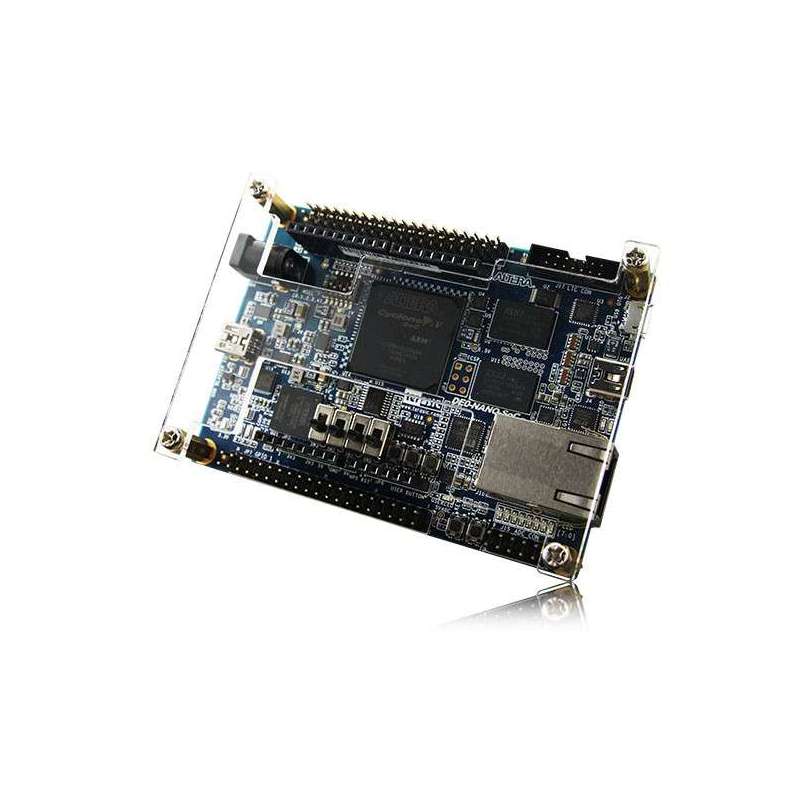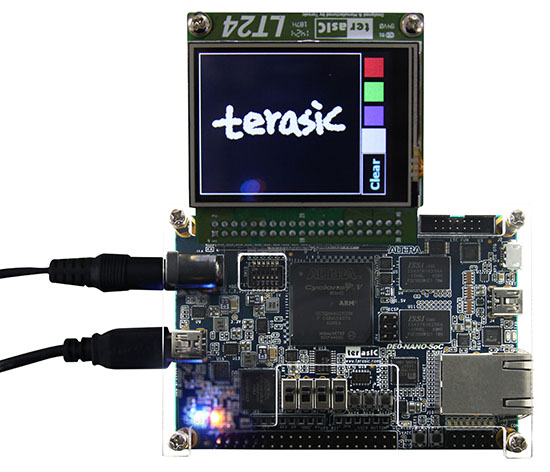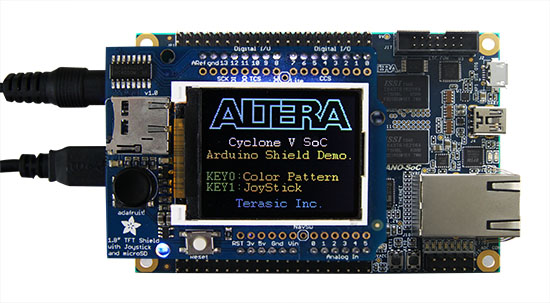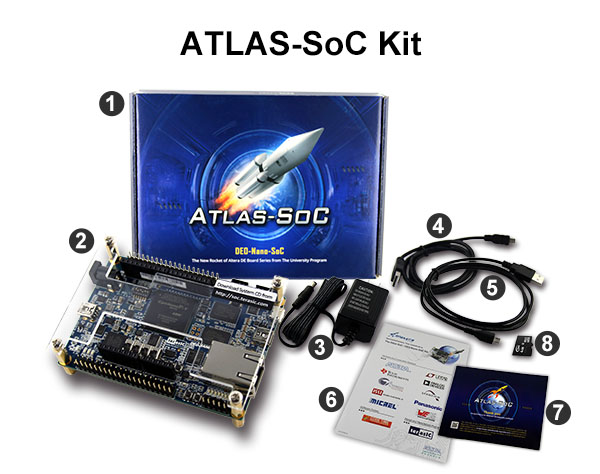

RLX COMPONENTS s.r.o. , Electronic Components Distributor.
RLX COMPONENTS s.r.o. , Electronic Components Distributor.
DE0-Nano-SoC Kit/Atlas-SoC Kit (TERASIC) P0286
The DE0-Nano-SoC Development Kit presents a robust hardware design platform built around the Altera System-on-Chip (SoC) FPGA, which combines the latest dual-core Cortex-A9 embedded cores with industry-leading programmable logic for ultimate design flexibility. Users can now leverage the power of tremendous re-configurability paired with a high-performance, low-power processor system. Altera’s SoC integrates an ARM-based hard processor system (HPS) consisting of processor, peripherals and memory interfaces tied seamlessly with the FPGA fabric using a high-bandwidth interconnect backbone. The DE0-Nano-SoC development board is equipped with high-speed DDR3 memory, analog to digital capabilities, Ethernet networking, and much more that promise many exciting applications.
The DE0-Nano-SoC Development Kit contains all the tools needed to use the board in conjunction with a computer that runs the Microsoft Windows XP or later.
What's different between the DE0-Nano-SoC kit and the Atlas-SoC kit?
The DE0-Nano-SoC kit uses the same printed circuit board as the Altas-SoC development platform. The only difference is the getting-started process for the two kits. Both kits come with a unique set of reference designs, tools, and documentation providing very different user experiences. Here's how to decide which is better for you:
DE0-Nano-SoC: Designed for the hardware developer. It provides reference designs and tutorials to guide you through your first FPGA, HPS, and system designs.
Atlas-SoC: Designed for the embedded software developer. It boots Linux, runs web and VNC servers, and provides reference designs, development tools, and tutorials to accelerate the learning curve of developing software for SoCs.
Can’t decide which to use? Here’s how to get them both.
Regardless of which kit you have, the reference designs, tools, documentation, and SD card images are available for free download. Because the hardware is the same, you can turn a DE0-Nano-SoC kit into an Atlas-SoC kit , or visa-versa, with a simple download and flash card update. Here's where to get the kit"soft" content:
DE0-Nano-SoC: Available at the Terasic web site here
Atlas-SoC: Available at the Terasic web site here
For more details on the Atlas-SoC kit, please visit: http://www.rocketboards.org/atlas-soc


Kit Content

 |
|
 |
|
The accessories might not look exactly the same as shown on this webpage

 |
|
 |
|
The accessories might not look exactly the same as shown on this webpage
What's different between the DE0-Nano-SoC kit and the Atlas-SoC kit?
The DE0-Nano-SoC kit uses the same printed circuit board as the Altas-SoC development platform. The only difference is the getting-started process for the two kits. Both kits come with a unique set of reference designs, tools, and documentation providing very different user experiences. Here's how to decide which is better for you:
DE0-Nano-SoC: Designed for the hardware developer. It provides reference designs and tutorials to guide you through your first FPGA, HPS, and system designs.
Atlas-SoC: Designed for the embedded software developer. It boots Linux, runs web and VNC servers, and provides reference designs, development tools, and tutorials to accelerate the learning curve of developing software for SoCs.
Can’t decide which to use? Here’s how to get them both.
Regardless of which kit you have, the reference designs, tools, documentation, and SD card images are available for free download. Because the hardware is the same, you can turn a DE0-Nano-SoC kit into an Atlas-SoC kit , or visa-versa, with a simple download and flash card update. Here's where to get the kit"soft" content:
DE0-Nano-SoC: Available at the Terasic web site here
Atlas-SoC: Available at the Terasic web site here
For more details on the Atlas-SoC kit, please visit: http://www.rocketboards.org/atlas-soc